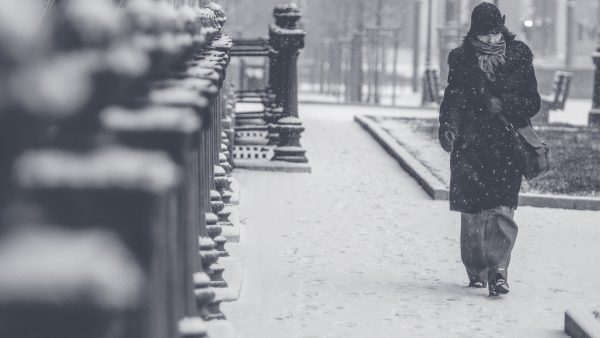Winter Clothing
Swapping your summer clothes for winter clothes is a great way to prepare for winter weather. When you remove your summer clothes, you create closet space for winter clothes which can help with keeping your closet organized and less crowded. This strategy can help you declutter your closet and see what still fits and think about getting rid of unnecessary items and donate them to an organization like Goodwill or Salvation Army. You might consider doing a friend or family swap: seeing if any of your friends or family members might be able to use any of the clothing items you are getting rid of.
While you are swapping your clothes, you can make sure you have all the essentials to stay warm and prepared for the worst.
Winter Emergency
Winter weather can bring a lot of obstacles and it is important to be ready for any emergency.
Emergency Readiness Kit and Plan
The Ability Center can help you create an Emergency Readiness Plan if you do not have one, having an Emergency Readiness kit in your home can help you be ready for any emergency. Here are some items you should have in your kit:
- List of emergency contacts
- Person’s name, relation, and phone number(s)
- Batteries and flashlights
- First Aid Kit
- Band-Aids (all shapes and sizes)
- Rubber Gloves
- Baby Wipes
- Antibacterial Wipes
- Antibacterial Cream
- Anti-Itch Cream
- Medications
- Pain Relievers (Tylenol, Ibuprofen, Advil)
- Allergy (Benadryl, Sudafed)
- Cold and Flu
Contact us for more information.
Home Emergency
Making sure you have the necessary supplies for outside the home is important to keeping everyone safe.
- Salt for the sidewalk and driveway
- Shovel to remove snow
- Winter gear (winter coat, gloves/mittens, snow pants, waterproof/insulated boots, hat/headbands, etc.)
Read our snow and ice removal blog and how it can affect people with disabilities.
Warm-Up
After being outside shoveling, taking off all wet and damp clothing and hang it to dry out is important, but changing your actual clothing will help you to warm up. You can also have yourself a cup of tea, coffee, or hot cocoa to warm your body up. Take a warm shower or bath and then snuggle up in a blanket and enjoy a movie!
Car Emergency
Making sure you have your Emergency Kit up to date is important, if you drive, you should have a kit in your home AND your car! Here are some things to have in your vehicle just in case you have a car emergency.
Check out this 9-step checklist for preparing your car for winter.


